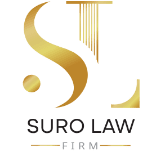Contact Suro Law
Get in Touch with Us
What Constitutes a Probation Violation?
If a defendant fails to meet the criteria laid out in their probation statement, they will likely face legal repercussions. There are many rules and regulations surrounding probation sentences in Colorado, and these conditions vary on a case-by-case basis. Some of the most common probation violations include:
Who Reports a Probation Violation?
While probation and parole are both types of supervised release, parole typically occurs after a prison sentence has already been served. Parole is only an option for felony cases – individuals who are in prison for a felony may get released early on parole.
Probation, on the other hand, is an alternative to incarceration. This means that a judge will grant probation instead of sending a defendant to jail or prison.
That being said, both probation and parole have similar terms and can result in jail time if violated.
Ultimately, we recommend hiring an experienced criminal defense attorney, who is well-versed in the ins and outs of probation violation cases. Remember that as the defendant, the burden of proof rests with the prosecutor, so you don’t necessarily need to prove that you are innocent. Instead, your attorney can work to show that the prosecutor has not proven his/her case with the evidence presented.
In some cases, especially for minor violations, it may be best to admit to the wrongdoing. Then, your attorney can work to lessen any charges or request that the judge give you a second chance and reinstate your probation.
Let’s Talk


"*" indicates required fields
Copyright ©2024 David Suro The Suro Law Firm. All Rights Reserved.

"*" indicates required fields